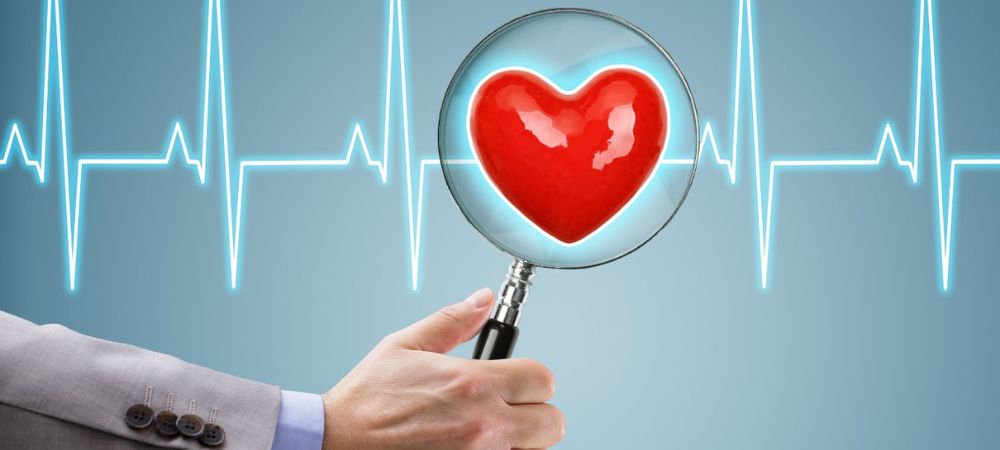

Routine check-ups ain't nothin' to scoff at when it comes to takin' care of our health. They may seem like a hassle, but they're actually super important in preventin' serious illnesses. Without regular check-ups, we might not catch potential problems early on, leadin' to more serious consequences down the road.
Even if we feel fine, it's still crucial to see our doctor regularly for check-ups. To learn more check that. They can detect any hidden issues that ain't showin' symptoms yet. Plus, they can provide valuable advice on how we can maintain good health and prevent future problems from poppin' up.
Sure, goin' to the doctor can be time-consumin', but it's worth it in the long run. Get the inside story see that. It's better to be safe than sorry when it comes to our health. So next time you're tempted to skip that routine check-up, remember that your well-bein' is worth the effort. Trust me, you won't regret stayin' on top of your preventive care!
Hey y'all, let's talk about the frequency of routine check-ups for different age groups. So, like, it's super important to make sure you're staying on top of your health by getting regular check-ups from your doctor.
For kids and teenagers, it's recommended to have annual check-ups to monitor their growth and development. These visits can help catch any issues early on and ensure they're staying healthy.
As we get older, the frequency of check-ups may vary. For adults in their 20s and 30s, a check-up every couple of years is usually sufficient unless you have specific health concerns or risk factors.
Once you hit your 40s and beyond, it's typically recommended to have an annual check-up to monitor things like blood pressure, cholesterol levels, and overall health.
Now I know what you might be thinking - "I feel fine, why do I need to go to the doctor?" Get access to further details click that. But trust me, it's better to be proactive about your health than waiting until something goes wrong.
So next time you're due for a routine check-up, don't put it off! Your future self will thank you for taking care of yourself now.
When it comes to savin' money and time, prioritizin' preventive care is key.. There are plenty of resources out there for findin' affordable options that won't break the bank.

Posted by on 2024-05-26
Hey there!. So, let's talk about the importance of regular check-ups and screenings for catching health issues early on.

Posted by on 2024-05-26
Hey there!. So, incorporating healthy habits into your daily routine is super important for long-term success.

Posted by on 2024-05-26
When it comes to preventin' common chronic diseases like heart disease, diabetes, and cancer, seekin' guidance from healthcare professionals can be key.. By workin' with a doctor or nurse to create a personalized preventive care plan tailored to your individual needs and risks, you can take proactive steps to stay healthy.
Instead of ignorin' potential health concerns or relyin' on guesswork, consultin' with a professional can help identify specific measures that may reduce your risk factors.

Posted by on 2024-05-26
Routine check-ups are so important! They can catch problems early before they get worse. Getting checked regularly can help prevent serious illnesses and diseases. Not going to the doctor regularly can lead to missing out on crucial information about your health. It's better to be safe than sorry, right? So don't skip those appointments!
There are many benefits of early detection through routine screenings. By catching things early, you can save yourself a lot of pain and trouble in the long run. Plus, it's easier to treat something when it's caught early on. Ignoring your health is never a good idea – trust me on this one!
So next time you're thinking about skipping that check-up, think again! It could make all the difference in your health and well-being. Don't wait until it's too late – take care of yourself now!

When we go for routine check-ups, there are a few common tests and examinations that we may have to undergo. These tests can give us valuable information about our health and help us to catch any potential issues early on.
Some of the common tests include blood pressure checks, cholesterol screenings, and blood sugar tests. These exams can help us to monitor our risk for conditions like heart disease, diabetes, and high blood pressure.
In addition to these basic tests, we may also need to get a physical exam from our healthcare provider. This can involve checking our weight, height, and body mass index (BMI), as well as listening to our heart and lungs with a stethoscope.
While these tests may not always be the most pleasant thing to do, they are important for maintaining good health. By staying on top of our routine check-ups and following our doctor's recommendations, we can ensure that we are taking care of ourselves in the best way possible. So don't skip out on those appointments – your future self will thank you!
So, when we talk about lifestyle factors that can impact the need for routine check-ups, there are a few things to consider. First off, not taking care of yourself by eating unhealthy foods and not exercising regularly can definitely make it more likely that you'll need to see a doctor more often. I mean, who wants to be going in for check-ups all the time because they're not taking care of themselves? It's just not fun, ya know?
Also, smoking and drinking too much can really mess with your health and make it necessary to have routine check-ups more frequently. I mean, come on, we all know that smoking is bad for you but some people just don't wanna listen.
And let's not forget about stress! If you're constantly stressed out and not finding healthy ways to cope with it, that can also lead to needing more frequent check-ups. Our bodies are affected by our minds so if you're constantly worrying or feeling overwhelmed, it's gonna show up in your physical health too.
So yeah, when it comes down to it, our lifestyles really do play a big role in how often we need routine check-ups. Taking care of ourselves by eating right, exercising regularly, avoiding harmful habits like smoking and excessive drinking, and finding healthy ways to manage stress can all help reduce the need for those pesky appointments at the doctor's office. Let's try and take better care of ourselves so we can avoid those routine check-ups as much as possible!

When it comes to getting routine check-ups, there are some important things to consider, like cost and insurance coverage. It's easy to think that regular appointments aren't necessary if you're feeling fine, but neglecting them can lead to bigger problems down the road.
Firstly, let's talk about the cost. Many people assume that going to the doctor for a check-up is expensive, but in reality, it can save you money in the long run. By catching any potential issues early on, you can avoid costly treatments later. Plus, many insurance plans cover preventive care at little to no cost to you.
Speaking of insurance coverage, it's crucial to know what your plan includes when it comes to routine check-ups. Some plans may fully cover these appointments while others may require a copay or deductible. Be sure to check with your provider so you don't end up with unexpected bills.
So next time you're tempted to skip your routine check-up because of cost concerns or insurance worries, remember that taking care of your health now can prevent more serious problems later on. And hey, who doesn't love a clean bill of health?
Hey there! So, you've got a routine check-up coming up, huh? No worries, I've got some tips to help you get ready for it. First off, make sure you bring all your documents with ya - insurance card, ID, and any medical history forms they may have sent ya. It'll save ya time at the front desk.
Next, jot down any questions or concerns you wanna chat about with the doc. Don't be shy - they're there to help ya out! And don't forget to mention any new symptoms or changes in your health since your last visit. It's important for them to have all the info.
Try to get a good night's sleep before the appointment and eat a light meal beforehand so you're not feeling too hungry or full during your visit. Oh, and don't forget to drink plenty of water - it helps keep ya hydrated!
Lastly, relax and take deep breaths if you start feeling anxious. Remember, routine check-ups are just part of takin' care of yourself and stayin' healthy. You got this!
